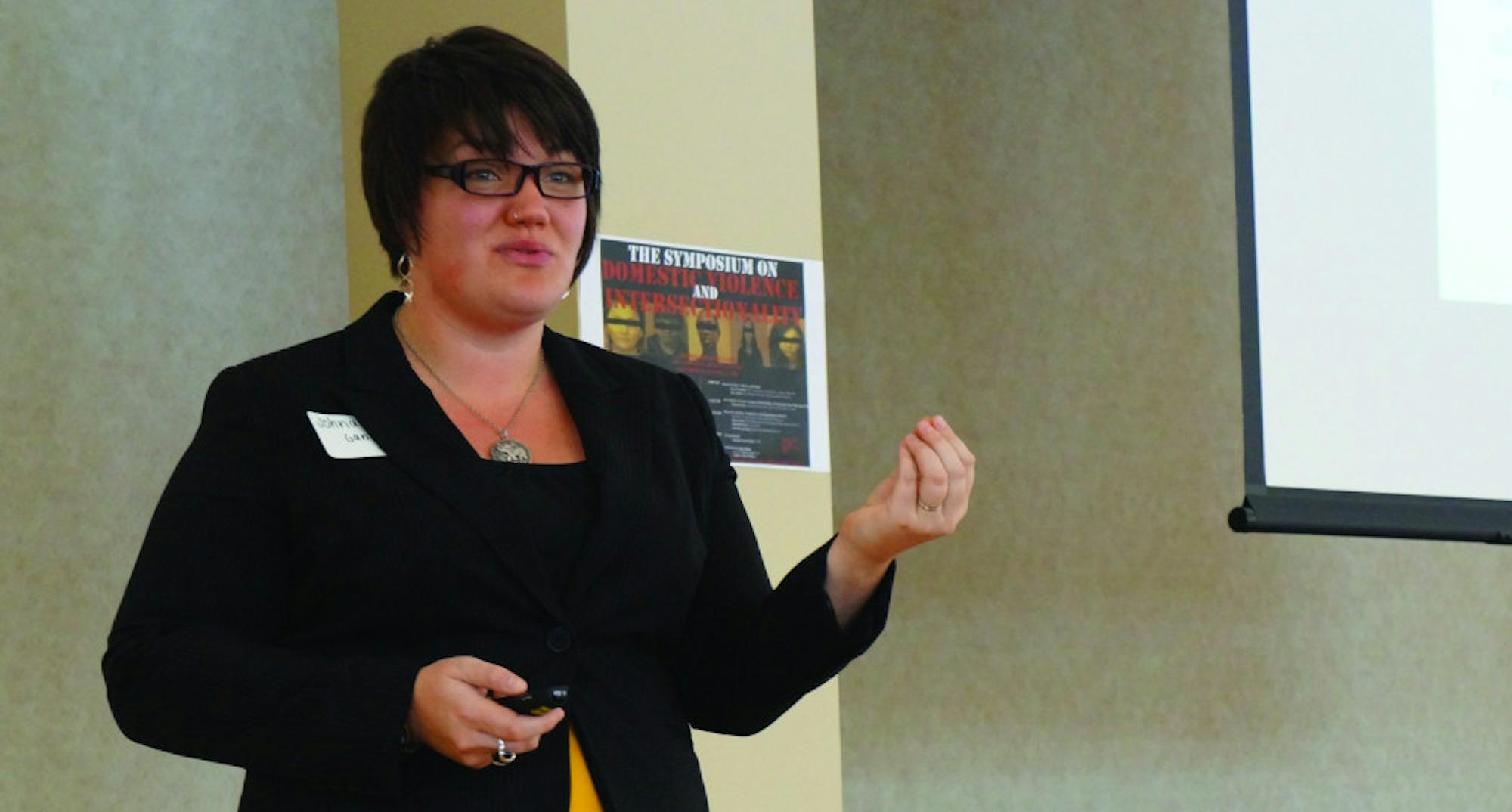
Professor of communications Marne Austin, who spoke about advocacy and relationships, said in her experience, the most difficult thing is naming the abuse.
“It’s so important to be able to name it for what it is,” she said. “I’m a Gender and Women’s Studies professor, and I couldn’t name it. We live in these contradictions, but we need to be able to talk about these issues in an honest forum.”
Austin said she faced an additional obstacle, which stemmed from the stigma surrounding her same-sex relationship. Austin said she stayed in her relationship because she didn’t want to become another reason for people to say homosexuality is not okay.
“'I told you so' is not helpful,” she said.
Listening and not judging are the most important ways friends can support victims, Austin said. As a professor, she said she tries to create a safe space for students, but she herself feels broken.
“I try to create this safe space for students, but so much of my identity is gone,” she said. “I don’t know who I am anymore.”
Senior Meredith Mersits said while she was in an abusive relationship, she always put the blame on herself.
It’s a job every day when you’re in a violent relationship, Mersits said. It consumes your thoughts and affects you mentally.
“I was in a relationship where I wasn’t myself,” she said. “I had lost my voice.”
As a social work major, Mersits said she knows firsthand the signs of domestic violence, but she was still unable to define her relationships as such.
“I’m an advocate for sexual assault and domestic violence victims, but I was in one myself,” she said. “I was embarrassed and didn’t want to see my relationship as abusive.”
There are no stereotypes for domestic violence situations, Mersits said, and it’s something that is often undetectable on the surface.
“You can’t look at someone and know they are in a domestic violence situation,” she said.
Support is crucial, but Mersits said the pain that accompanies domestic violence is not fixable.
“So often we want to fix things, but this is not something that is easily fixable,” she said. “It takes one day at time, and my friends helped me get my voice back.”
Laura Brandenburg, director of advancement services, said she left an abusive marriage after many years, but it wasn't until later that she realized her relationship was abusive.
Brandenburg said her husband would get angry and expect her to get over his rage quickly. Mentally, it was exhausting, she said.
Brandenburg referenced a weekend during her marriage when she planned to attend a scrapbooking weekend with a church group. She said she had boxes of supplies lined up at the door, and her husband hid the boxes as a way of telling her she couldn’t go.
“[Domestic violence] makes you feel so little and taken advantage of and controlled, and you don’t know what to do from there,” she said.
Brandenburg reiterated the message of constant support from friends.
“It’s helpful to have friends that are there to listen,” she said. “My friends help me feel validated and like I’m not crazy.”
Austin said support is a lifelong need for victims of domestic violence.
“I feel like a shell of what I used to be, but I ask that you understand support needs to be continuing even long after the relationships is terminated,” she said.













